Are you in need of a reliable transportation service agreement? Establishing clear terms and expectations is crucial for smooth operations and maintaining professional relationships. In this article, we'll provide you with a comprehensive letter template that outlines the key components of an effective transportation service agreement. So, buckle up and read on to discover how to create a solid foundation for your transportation needs!

Parties Involved
A transportation service agreement typically includes key parties involved in the contract. For instance, the "Service Provider," often a logistics company such as FedEx or UPS, responsible for transporting goods. The "Client" refers to the individual or business, such as a retailer or manufacturer, utilizing these services for shipping products. Additionally, third parties may include "Freight Forwarders," facilitating the import/export processes, and "Consignees," the recipients of the transportation services. Each party plays a crucial role in ensuring smooth logistics operations and adhering to regulatory compliance in the transportation industry.
Description of Services
The transportation service agreement outlines the comprehensive logistics support provided by the service provider, including local and long-distance freight movement (within 250 miles or more), specialized vehicle options such as flatbeds and refrigerated trucks, and real-time tracking capabilities through advanced GPS technology. Services encompass loading and unloading operations, ensuring compliance with safety regulations and industry standards, and providing insurance coverage up to $1 million for goods in transit. Additionally, the agreement specifies scheduled deliveries with a maximum delay tolerance of no more than four hours, ensuring timely customer service and adherence to the mutually agreed-upon timelines. All services aim to streamline supply chain operations and enhance overall efficiency for businesses, targeting sectors such as retail, manufacturing, and perishable goods distribution.
Payment Terms
In a transportation service agreement, payment terms play a crucial role in defining the financial expectations between the service provider and the client. Typically, payment terms specify the total fees for transportation services, which may vary based on distance, type of cargo, and service level (such as expedited service or standard delivery). Invoice frequency can be established, whether it be weekly, bi-weekly, or monthly to align with the client's budgeting practices. Late payment penalties, often outlined as a percentage of the overdue balance, might be enforced to encourage timely payments, preventing disruptions to service. Additionally, accepted payment methods (credit card, bank transfer, or electronic payment systems) must be clearly stated to ensure smooth transactions. Specific conditions for adjusting fees, such as fuel surcharges due to market fluctuations, should also be included, providing transparency and clarity for both parties involved in the agreement.
Duration and Termination
Transportation service agreements outline the duration of the contract and the conditions under which it can be terminated. Typically, the duration of the agreement could range from six months to several years, depending on the scope and nature of services provided, such as freight logistics or passenger transport services. Termination clauses often include stipulations such as notice periods, usually 30 days. Breach of contract, non-performance, or mutual agreement are common reasons for termination. Specific provisions may define penalties for early termination, safeguarding the interests of the service provider. Additionally, renewal options might be negotiated within the contract, providing flexibility for both parties.
Liability and Insurance
A transportation service agreement outlines crucial elements such as liability and insurance provisions, ensuring the safety of both the carrier and the client. Liability refers to the legal responsibility for any damage or loss occurring during transit, which might include theft, accident, or delayed delivery. Insurance coverage typically includes cargo insurance, protecting valuable shipments valued at over $50,000 against unforeseen events like natural disasters or accidents. Additionally, commercial vehicle insurance safeguards against third-party claims for accidents involving the transport vehicle. It's essential for the agreement to specify coverage limits and types of incidents covered, enhancing transparency and trust between parties. Regular reviews of insurance policies can also ensure ongoing compliance with industry regulations and standards, fostering accountability and adaptability in the face of evolving transportation challenges.


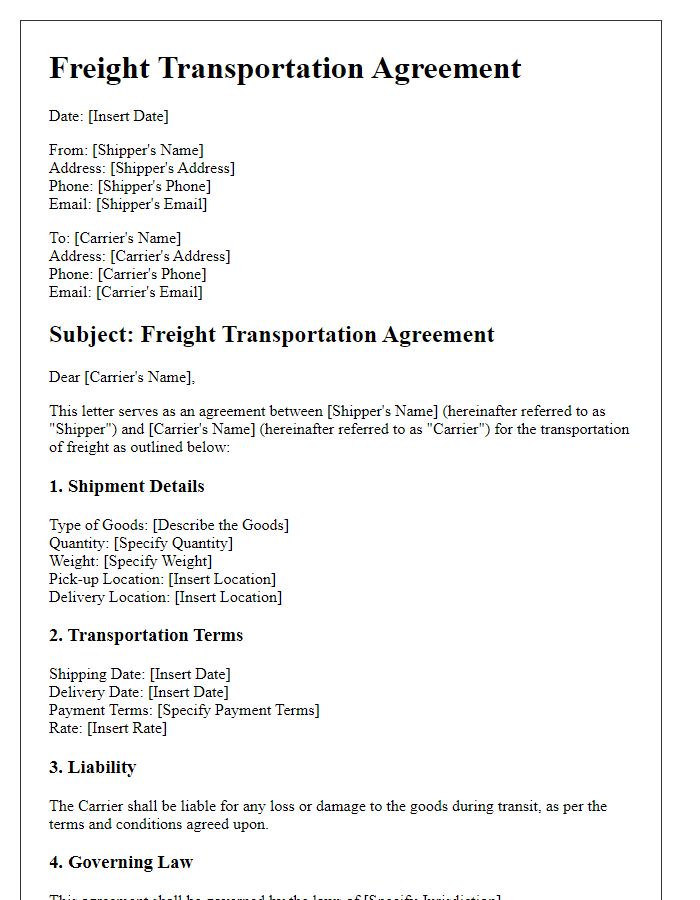
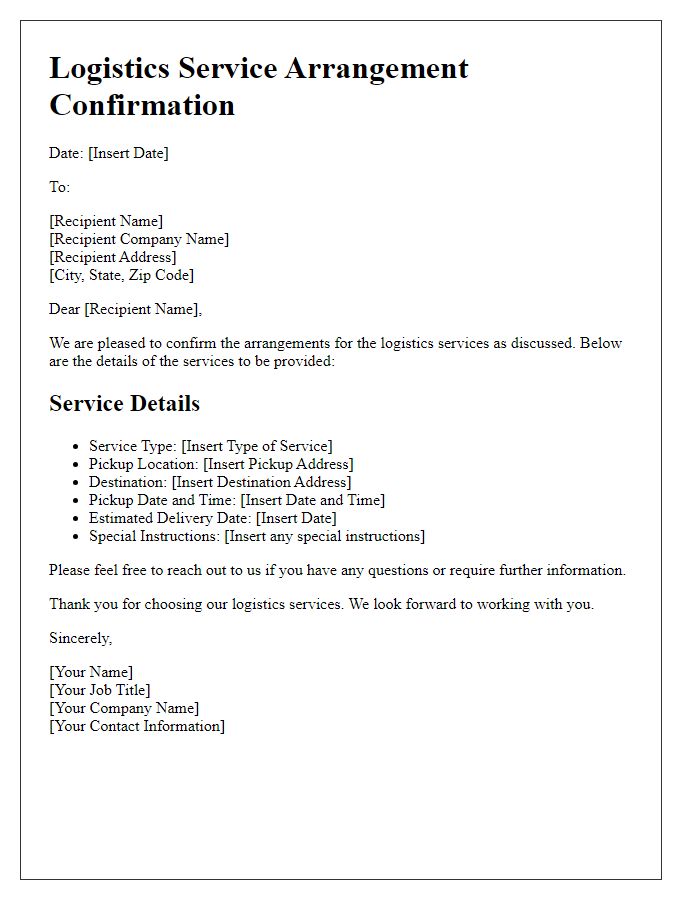
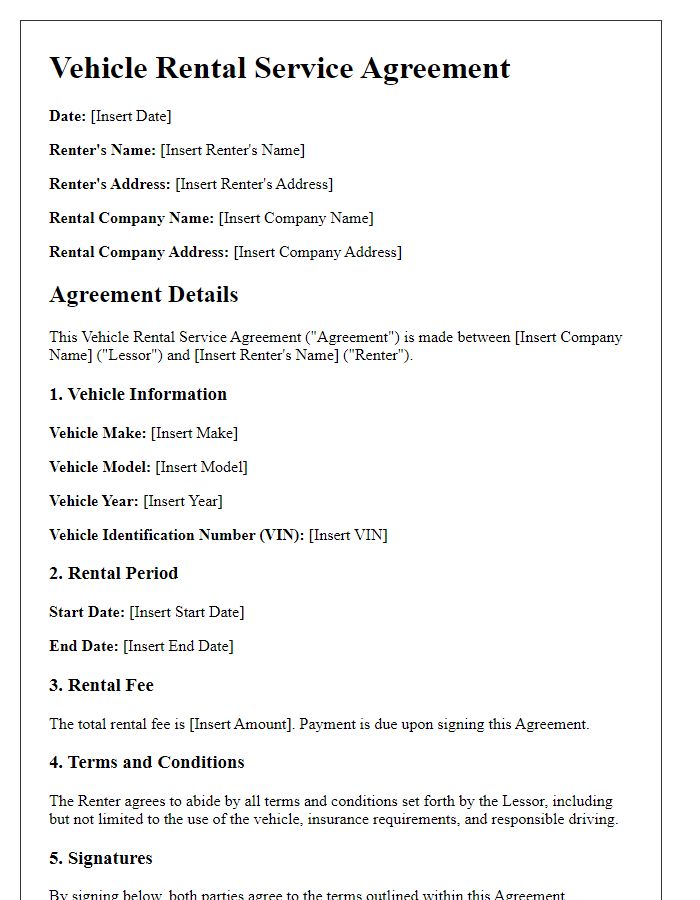
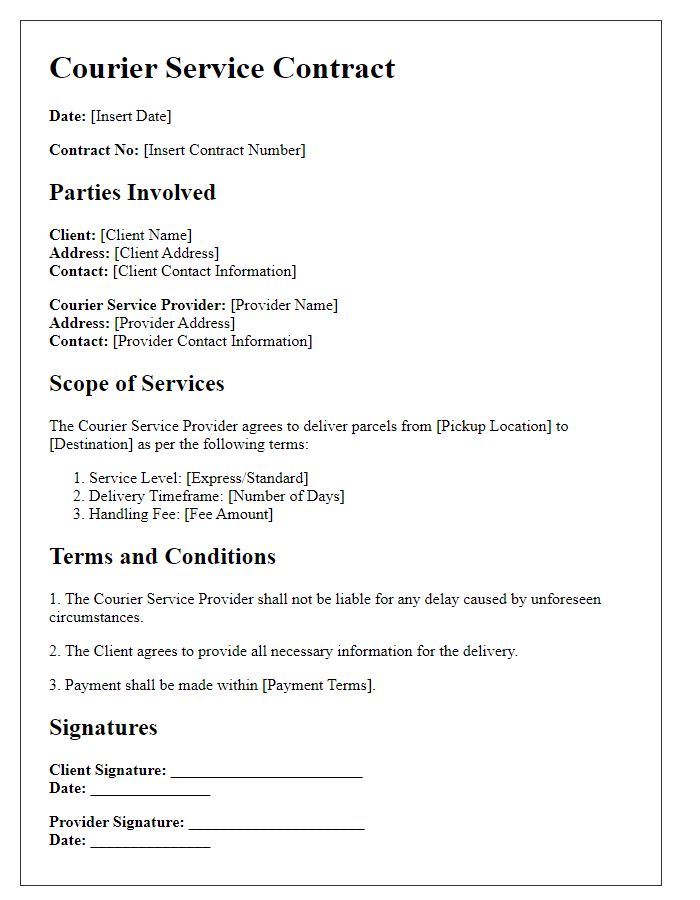
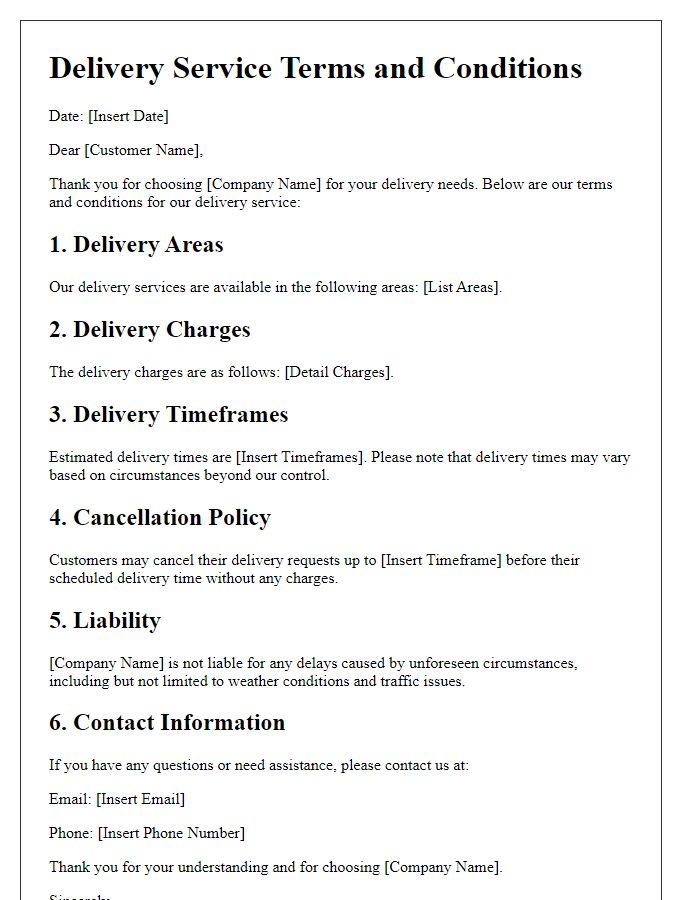
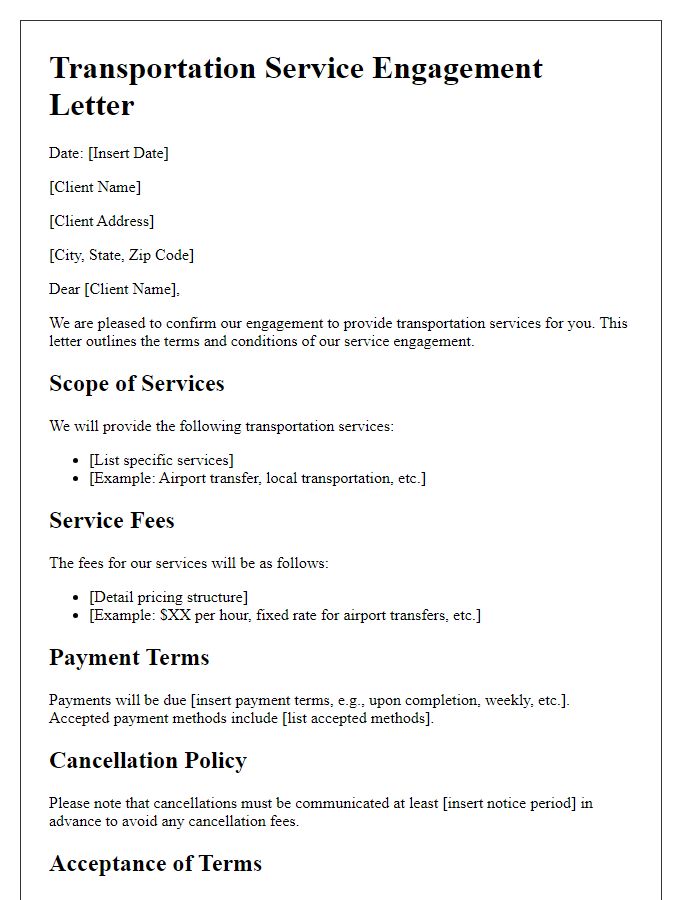
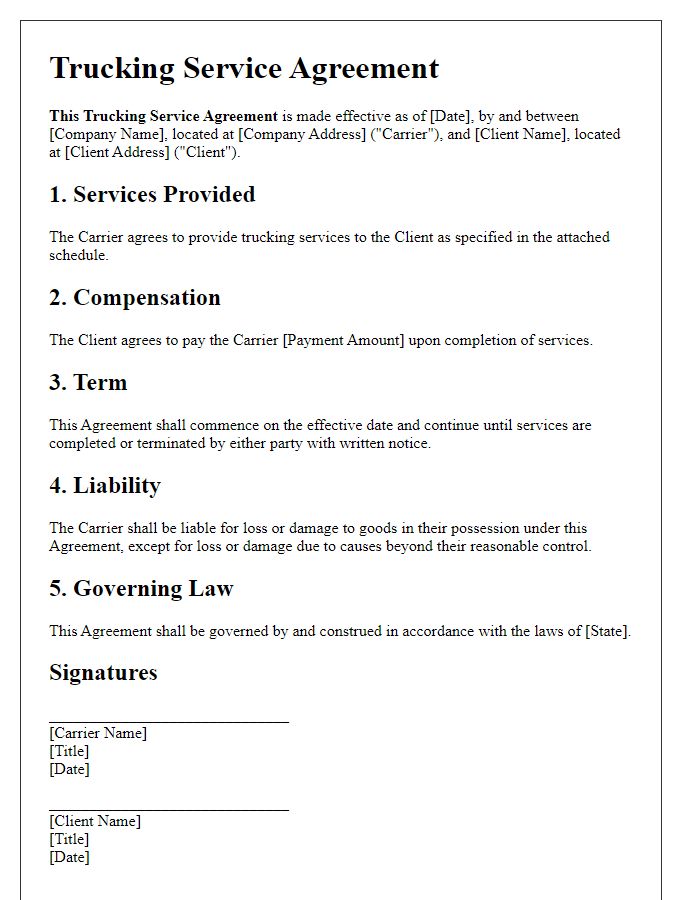
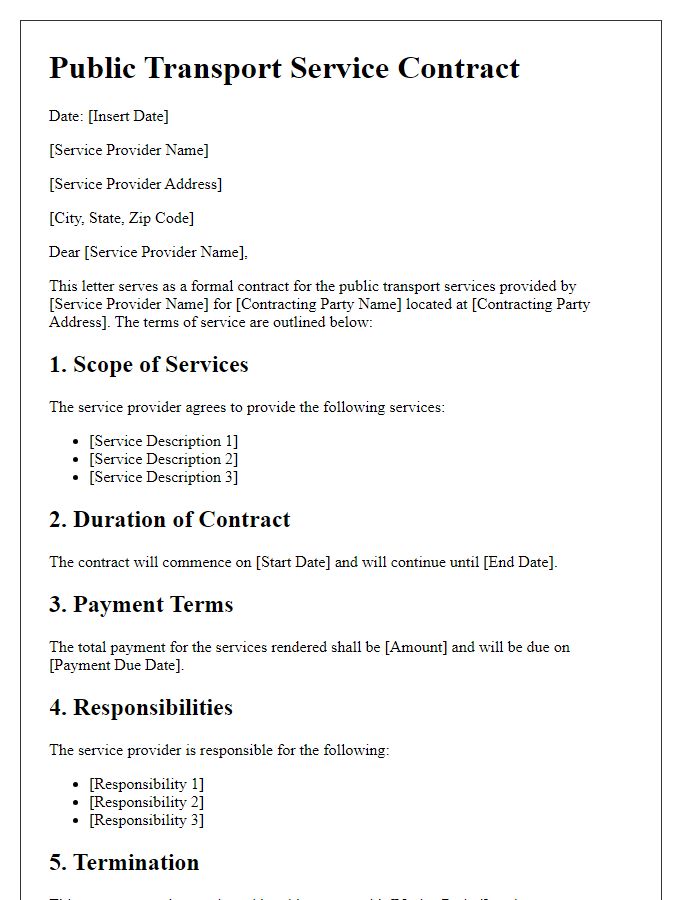

Comments